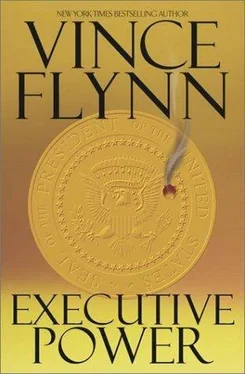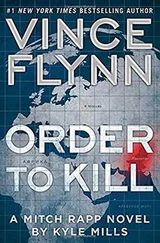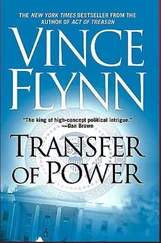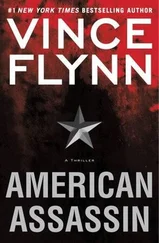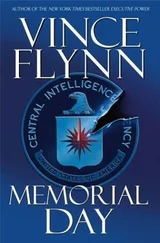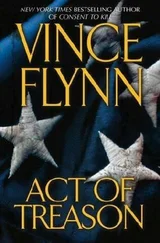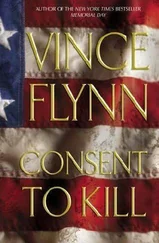"I'd like to remind everyone," interrupted the President's chief of staff, "that I thought that entire operation was a bad idea from the start."
Ignoring Jones, Kennedy held up one of the two red folders and said, "I think I can shed some light on what went wrong, sir."
Hayes, his curiosity piqued, placed his forearms squarely on the desk and said, "I'm all ears."
"In this file"-Kennedy held up her left hand-"I have a list of e-mail and telephone transcripts. You will remember that before launching the rescue operation we decided that for reasons of operational security our embassy in the Philippines would not be notified until the teams and the hostages were safely extracted."
Jones had just finished taking a sip of coffee and began to shake her head vigorously.
"Again, I'm on the record as saying that was a bad idea. We're going to be smarting over that one for some time. This thing is a real mess. The press is getting more curious by the hour. The press office has already received three calls this morning, the Philippine government is demanding answers and our own State Department is furious."
The President also chose to ignore Jones for the moment and stayed focused on Kennedy, saying, "I remember the issue was hotly contested."
Without looking up, General Flood grumbled, "And you made it very clear, sir, that our embassy was not to be notified."
The President was caught a little off guard by the general's tone.
The soldier was in an unusually foul mood, which was very out of character.
"Sir," said Kennedy as she opened the file and handed the President the first page.
"This is the transcript of an e-mail that was sent by Assistant Secretary of State Amanda Petry to Ambassador Cox. In it she clearly states the time and date the operation was to commence."
Kennedy gave the President a second to look over the text and then handed him another piece of paper.
"This is Ambassador Cox's reply asking for more specifics, and this is Amanda Petry's reply that outlines the rescue operation in detail." Kennedy handed him the third sheet.
The President looked over the documents in silence, and a frown slowly darkened his expression as each word hinted at what may have happened, and the twisted dark road where this might take him.
Patience not being one of her virtues, Jones got up from her chair and stood over the President's shoulder. She began scanning the documents and trying to make sense of what Kennedy was up to.
Pulling his reading glasses down to the tip of his nose Hayes looked at the director of the CIA and said, "This is serious stuff."
Before she could answer Jones said, "The State Department is going to be livid about this. Beatrice Berg is a living legend… are you out of your mind?" Jones was referring to the recently confirmed Secretary of State, who was quite possibly the most respected person in Washington. She was currently in Greece leading a delegation that was trying to jump-start the Middle East peace talks.
Kennedy nodded and said, "Valerie, none of us are happy about this."
"No," said Jones in an icy tone.
"I'm not talking about the operation.
I'm talking about you spying on State. You can't just go around intercepting State Department cables. I mean, are you insane?" Jones's face twisted into a scowl as she tried to calculate the damage that would be done if this were leaked to the press.
"Ms. Jones," General Flood gruffly replied.
"It is routine business for the NSA to intercept embassy traffic. And beyond that I don't think the State Department is in much of a position to complain about anything."
"General, I don't like this any more than you do," the President's chief of staff said a little defensively, "but the State Department will not take kindly to being spied on by the CIA, the NSA or whoever."
"Tough shit," answered Rapp before Flood or Kennedy could say a word.
All eyes turned to Rapp, who was sitting on the opposite side of the desk. Jones, not one to be intimidated easily, said, "I beg your pardon?"
Rapp's dark penetrating eyes were locked on to the President's chief of staff.
"Two sailors are dead and at least two more have had their careers ended due to the injuries they've suffered. Lives have been destroyed, Valerie. Children will never see their fathers again, two women have been widowed, and we still have an entire family of Americans held hostage in the Philippines, all because a couple of diplomats couldn't keep their mouths shut."
Jones snatched one of the pieces of paper from the President's desk and defiantly shook it.
"This is not conclusive."
Rather than waste his time screaming at Jones, Rapp looked to Kennedy, anticipating the evidence that would silence the President's right-hand woman.
Calmly, Kennedy said, "Sir, there's more. After receiving the heads-up from Assistant Secretary Petry, Ambassador Cox phoned Philippine President Quirino." Kennedy handed the President a copy of the conversation.
"An hour after that conversation took place Ambassador Cox arrived at the Presidential palace where he stayed for approximately thirty minutes. We don't know what was said between the Ambassador and President Quirino, but shortly after the Ambassador left, President Quirino placed a phone call to General Moro of the Philippine army.
"As I'm sure you're aware, General Moro has been in charge of trying to track down Abu Sayyaf for the last year. He has repeatedly promised that he will free the Anderson family and deal harshly with the terrorists. On two separate occasions the general has had Abu Sayyaf cornered only to have them miraculously escape. Our military advisors in the region began to smell a rat and the DOD asked us to put the general under surveillance. This was over five months ago."
Kennedy opened the second folder and handed the President a fresh set of documents.
"It turns out General Moro is not such a good ally after all. We didn't know it at the time, but he was a very active advocate of kicking the U.S. Navy out of Subic Bay. He wields great influence in a country where bribes are a way of life. We found several bank accounts, one in Hong Kong and the other in Jakarta. It looks like the general has been in the pocket of the Chinese for the better part of the last decade, and more recently we think he began extorting protection money from Abu Sayyaf."
Jones scoffed at the idea.
"You mean to tell me that a bunch of peasants running around in the jungles over there can scrape up enough money to bribe a general in the Philippine army?"
"That's exactly what I'm saying," replied an even-keeled Kennedy.
"That's one of the most ludicrous things I've ever heard."
Kennedy resisted the urge to tell Jones that if she'd paid attention to her intelligence briefings she'd know that the idea was far from ludicrous.
People in Washington had long memories and another thing Thomas Stansfield had taught her was to avoid making it personal.
"Abu Sayyaf is not just some poor group of peasants. They receive millions in funding from various Muslim groups throughout the Middle East. Much of it comes from Saudi Arabia."
The President did not want to get into that mess right now so he focused his gray eyes on General Flood and asked, "Was General Moro informed by us of any aspect of the rescue mission prior to it being launched?"
"No," answered Flood.
"For reasons that are all too apparent, the plan was to keep the Philippine army in the dark until we were on our way out with the Andersons." Flood shrugged.
"We didn't trust them enough to bring them in on it and if we didn't ask for permission, they couldn't say no."
The chief of staff rolled her eyes and said, "I'd hate to think what the U.S. Army would do if a foreign country conducted a military operation on American soil without our permission."
Читать дальше
